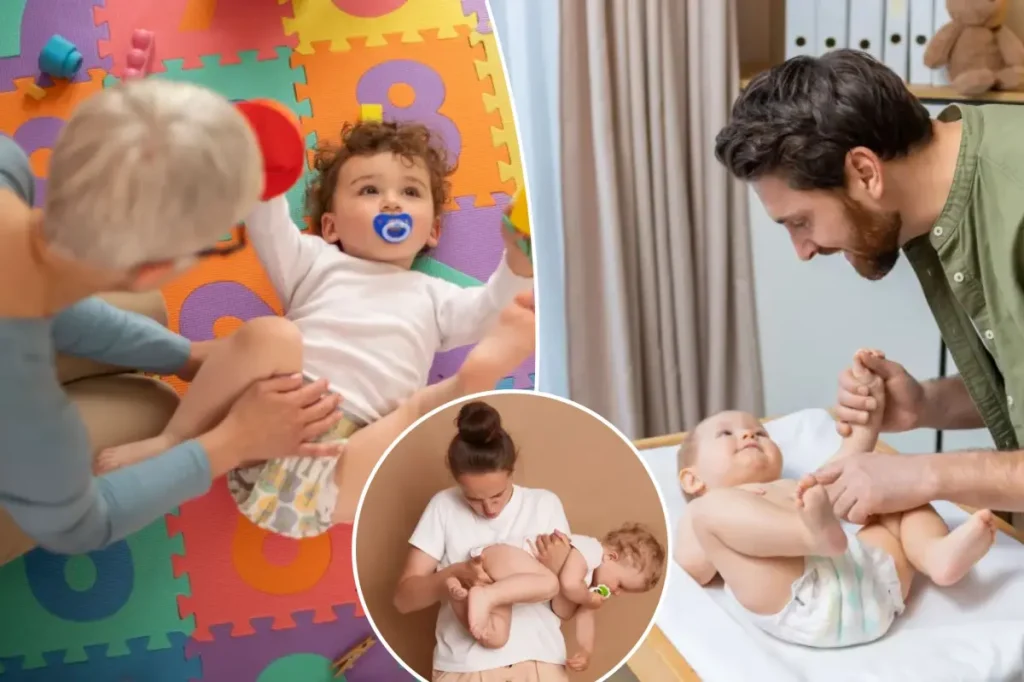The Evolving Approach to Diaper Changes: Teaching Consent from Day One
A new parenting approach is challenging traditional methods of changing a baby’s diaper. Early childhood development researchers from Australia’s Deakin University have proposed a revolutionary concept in their November 2025 guide: requesting an infant’s consent before changing their diaper. This guidance suggests that rather than rushing through diaper changes as a task to “just get done,” parents should communicate with their babies throughout the process. The researchers recommend getting down to the child’s level and saying, “You need a nappy change,” then pausing to allow the baby to process this information. They even suggest offering choices like, “Do you want to walk or crawl with me to the table, or would you like me to carry you?” While critics might point out that newborns can’t verbally respond to such questions, the researchers advise parents to observe facial expressions and body language to gauge understanding. This approach, they explain, helps children begin learning about consent and how their bodies work from the earliest age possible.
This diaper-changing philosophy appears to align with “gentle parenting,” an increasingly popular parenting style among millennials and Gen Z parents. Gentle parenting emphasizes empathy, respect, connection, and communication over strict rules and punishments. The approach prioritizes a child’s autonomy and emotional needs, creating space for their preferences even before they can articulate them clearly. The Deakin researchers extend their recommendations to include inviting babies to participate in the diaper-changing process with prompts like, “Can you please lift up your bottom so I can slide your nappy out?” While some may find these suggestions peculiar or impractical, the researchers assert that “these habits plant the seed of the idea that a child has the right to say what happens to their body.” Though gentle parenting has gained traction among younger parents, it hasn’t escaped criticism from those who worry such permissive approaches might result in behavioral challenges as children grow older.
Mental health professionals have weighed in on this consent-focused approach to diaper changing, offering context for what might initially seem like an unusual practice. Yamalis Diaz, a clinical child psychologist with NYU Langone Health, explains that verbally involving babies in diaper changes isn’t about expecting actual consent from infants but rather about “integrating the teaching of consent into the parent’s practices early on.” This approach, Diaz suggests, increases parents’ awareness of how consent applies throughout a child’s life and establishes a foundation for more complex conversations about boundaries as the child develops. Similarly, NYC-based psychotherapist Lesley Koeppel acknowledges that while babies cannot verbally agree or disagree, parents can still narrate their actions during diaper changes. “This builds a foundation for bodily autonomy long before a child has language,” Koeppel notes, emphasizing that talking about consent with babies is “symbolic rather than literal” but conveys the essential message: “You matter. Your body matters. I will always tell you what I am doing.”
The researchers strongly advise against distracting children during diaper changes with toys, songs, or rattles, arguing instead for genuine engagement. “It’s important children notice when someone is touching their most intimate parts,” they explain, suggesting that awareness of touch, especially to private areas, is crucial for developing a sense of personal boundaries and safety. They believe that even very young infants can respond to consistent verbal cues, so parents should use similar language and follow regular routines that incorporate conversation during diaper changes. Perhaps most controversially, the researchers recommend using anatomically correct terms for body parts—such as vulva, penis, and anus—rather than childish euphemisms when changing and bathing babies. While acknowledging that parents may feel uncomfortable with this practice, they maintain that using proper terminology “keeps children safe, as it means they can then inform trusted adults about their experiences with all the people who care for them.”
The approach represents a significant shift in how we view infant care and early childhood development. Rather than treating babies as passive recipients of care, it recognizes them as individuals deserving of respect and communication from birth. This perspective aligns with evolving understandings in developmental psychology that emphasize how early experiences shape a child’s sense of self and relationships with others. By establishing patterns of communication and respect during routine care activities like diaper changing, parents potentially lay groundwork for healthy boundaries, body autonomy, and interpersonal relationships later in life. The consent-focused approach also reflects broader cultural shifts regarding bodily autonomy and consent in various contexts, suggesting that these concepts are so fundamental they should be introduced from the earliest possible age, even if only symbolically at first.
While presenting these recommendations, the Deakin researchers acknowledge the challenges of implementing such mindful practices amid the demands of parenthood. “The habits we outline above may also seem to add more work to the already demanding parental load,” they concede, encouraging parents to incorporate these practices as often as possible while being compassionate with themselves when every diaper change isn’t “a perfect moment of connection.” This acknowledgment reflects an understanding that parenting ideals must be balanced with practical realities. Whether this approach to diaper changing becomes widely adopted or remains a niche practice, it raises important questions about how and when we begin teaching children about consent, bodily autonomy, and respectful communication. As with many parenting philosophies, families will likely adapt these ideas to fit their own values, circumstances, and children’s unique needs, taking what resonates while leaving what doesn’t. In the meantime, this unconventional approach to a universal parenting task has sparked valuable conversations about the messages we send to our children from their very first days.













